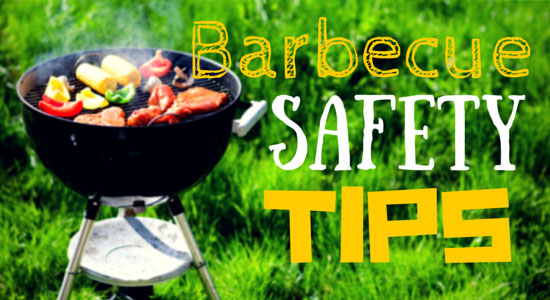It’s grilling season. Proper handling and preparation of food are important to prevent and avoid foodborne illnesses (food poisoning). Before you fire up the grill for summertime cookouts, picnics, and holiday celebrations, here is important information about foodborne illness.
What is foodborne illness?
Foodborne illness is sometimes called “food poisoning.” Each year, one in six Americans gets sick from eating contaminated foods or drinking contaminated beverages.
What causes a foodborne illness?
The most common causes of foodborne illness are bacteria and viruses such as Salmonella, norovirus, Clostridium perfringens, Campylobacter, Listeria monocytogenes, and Staphylococcus aureus.
Who is at risk for foodborne illness?
Foodborne illness can affect anyone who eats contaminated food. Certain groups like pregnant women, older adults, and people with chronic illnesses are more likely to get sick from contaminated food.
What are the symptoms of a foodborne illness?
Common symptoms include upset stomach, abdominal cramps, nausea and vomiting, diarrhea, fever, and dehydration. Symptoms can be mild to severe.
What can you do to protect yourself and your family from food poisoning?
Follow these steps to prevent foodborne illness: clean, separate, cook, chill, and report.
- Clean: Germs can survive in your hand, utensils, and cutting boards.
- Wash hands often with soap and water for 20 seconds, scrubbing the back of your hands, between fingers, and under nails. To prevent cross contamination, make sure to wash your hands each and every time after handling raw meat.
- Wash surfaces and utensils with soap and hot water after each use.
- Wash fruits and vegetables before you peel or cut them.
- Do not wash meat or poultry. This can cause bacteria from the raw meat and poultry juices to splash and spread to other foods, utensils, and surfaces.
- Separate: Germs are spread by cross-contamination.
- Use separate cutting boards, plates, and utensils for uncooked produce (e.g., vegetables, fruits) and uncooked meat, poultry, and seafood.
- Separate meat, poultry, seafood, and eggs from other foods in your shopping cart at the grocery store.
- Separate meat, poultry, seafood, and eggs from all other foods in your refrigerator.
- Cook: Cook to the right temperature.
- Use a food thermometer to make sure food is cooked to the right temperature.
- Internal temperatures: whole meats at 145°F; ground meats at 160°F; and, poultry at 165°F.
- Chill: Refrigerate promptly and properly.
- Refrigerate perishable food within two hours.
Call your healthcare professional if you think you have food poisoning or call 911 if it’s an emergency.
Contact your local health department if you think you or someone you know became ill from eating a certain food from a restaurant.
Happy Grilling!

